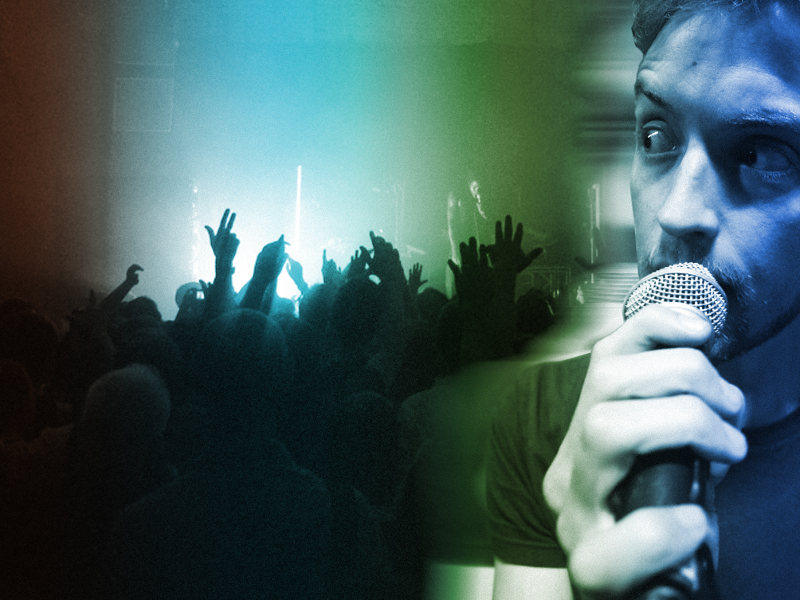Johnno McCreadie is 15 and lives in Livingston, Scotland. His friend Spanner is a bit of a bad laddie; his mum Alison is worried about those boys, about drugs. The D-man, a techno-head from the south of England, is taking Johnno and Spanner to a rave, Johnno’s first ever. Robert Dunlop is a policeman haunted by his own father; he will encounter Johnno not as a discontented 15 year-old son but as a hooded youth, a hooligan who needs to be taught a lesson.
Set in Livingston, a down and out town in Scotland with bitumen pavements, Kieran Hurley’s BEATS tells us a story about rave culture in the early 90s – specifically in 1994 when the Criminal Justice Act outlawed raves with legislation that banned ‘public gatherings around amplified music characterised by the emission of a succession of repetitive beats’. It is told with the help of a live DJ/VJ and a collection of incredibly detailed characters delivered by Kieran in an understated performance incorporating swift and stunning accent shifts and a very evocative use of props.
Sitting in the studio of the Bristol Old Vic my body is transported to another place, to a place with massive speakers, lights that blind my eyes, and a bass that shakes my bones. The recreation of this environment is strongly affecting; I am excited and now connected to a me that jumps in a crowd that worships music. Kieran Hurley uses this atmosphere to send us hurtling through a tale of rave beats and techno music that strives to create euphoria. Each character is truly believable and has their own identifiable charm. Kieran brings a particularly emotive attention to the character of Johnno’s mum, Alison: waiting for him when he doesn’t return home; making a list of all the things she could do when he gets back, wrapped up with worry and love.
The policeman’s conversations with his dead father allow us access to what came before all this – the 80s, the strikes and demolitions, the run up to a generational mentality fit for rave culture. The writing sets the context effortlessly – the sense that everything has happened in the past, that there is nothing left for a current or future generation. This is where Johnno comes from, a place of depression and boredom: as Johnno says before leaving with his friends to his first rave, ‘What about me?’
As the narrative enters the illegal rave and Johnno’s first experience of drugs is being played out for us, a huge, crude, bright red beating heart is projected onto the screen, like the readout from some video game. The part that drugs play within rave culture is an important area to stress; it is the reason for much of the condemnation of the subculture, and for the fear it causes within society. But Johnno is being taken over and is in love with it, with everything and everyone. A unity is formed with the crowd and in ecstasy Johnno repeats ‘what’s good for me, is good for you’. Suddenly he feels connected to something after so many nights of sitting shrouded in his green hoodie playing Zelda alone.
Kieran reveals fantastic empathy and understanding with all sides of the story, allowing us a completely rounded experience. The text neatly wraps itself up: the beginning that is cunningly delivered off mic, like a kind of introduction, weasels its way into the end of the narrative. ‘It means nothing, this is your lot, it means nothing, it means nothing,’ he says when it has become so clear that it does mean something – that this wave of music had a political drive that was counteracting a social oppression. By the end of the show it has come to mean something to us all, whether rave culture it was before our time or not.
Full of emotive touches and of historical and political importance, relatable and provocative, BEATS is a jam-packed story mixing up freedom, drugs, youth, police, music, family, friendship. Its expression of the hunt to feel like you have a place in this world, that you can belong, is utterly thrilling.

